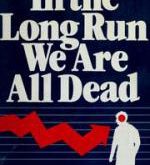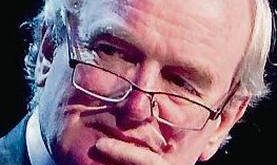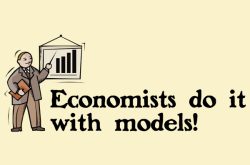Mångkulturalism — ett hot mot jämställdheten Är mångkulturalismen ett hot mot jämställdheten? Det beror på hur majoritetssamhället agerar. Men om tassandet kring frågan fortsätter så är risken stor att svaret blir ja. Med stort mod och hårt arbete har Sveriges kvinnor vunnit en sexuell frihet våra förmödrar bara kunde drömma om … Men det här är inte en kvinnofråga. Det ingår om Sverige ska förbli en västerländsk liberal demokrati – det bästa sätt att leva ihop som människan hittills kommit...
Read More »Why Africa is so poor
Why Africa is so poor A few years ago, two economics professors, Quamrul Ashraf and Oded Galor, published a paper, “The ‘Out of Africa’ Hypothesis, Human Genetic Diversity, and Comparative Economic Development,” that drew inferences about poverty and genetics based on a statistical pattern … When the paper by Ashraf and Galor came out, I criticized it from a statistical perspective, questioning what I considered its overreach in making counterfactual causal claims … I argued (and continue...
Read More »The long run fallacy
The long run fallacy It appears to me that one great cause of our difference in opinion, on the subjects which we have so often discussed, is that you have always in your mind the immediate and temporary effects of particular changes—whereas I put these immediate and temporary effects quite aside, and fix my whole attention on the permanent state of things which will result from them. Letter from Ricardo to Malthus January 1817 On this issue Keynes agreed with Malthus, and it was probably...
Read More »Eric Schüldt — ett ljus i det musikaliska mörkret
Eric Schüldt — ett ljus i det musikaliska mörkret I dessa tider — när ljudrummet dränks i den kommersiella radions tyckmyckentrutade ordbajseri och fullständigt intetsägande pubertalflamsande tjafs — har man nästan gett upp. Men det finns ljus i mörkret! I radions P2 går varje lördagmorgon ett vederkvickelsens och den seriösa musikens Lördagsmorgon i P2. Och nu är även söndagarna räddade! I programmet Text och musik med Eric Schüldt — som sänds på söndagsförmiddagarna i P2 mellan klockan 11...
Read More »Top 10 Economics Books
Top 10 Economics Books Karl Marx, Das Kapital (1867) John Maynard Keynes, General Theory (1936) Kenneth Arrow, Social Choice and Individual Values (1951) John Kenneth Galbraith, The Affluent Society (1958) Amartya Sen, Collective Choice and Social Welfare (1970) Nicholas Georgescu-Roegen, The Entropy Law and the Economic Process (1971) Michal Kalecki, Selected Essays on the Dynamics of the Capitalist Economy (1971) Paul Davidson, Money and the Real World (1972) Hyman Minsky, John Maynard...
Read More »Price rigidities and unemployment
Price rigidities and unemployment There are unfortunately a lot of mainstream economists out there who still think that price and wage rigidities are the prime movers behind unemployment. What is even worse is that some of them even think that these rigidities are the reason John Maynard Keynes gave for the high unemployment of the Great Depression. This is of course pure nonsense. For although Keynes devoted substantial attention to the subject of wage and price rigidities in General...
Read More »DSGE models — a costly waste of time
DSGE models — a costly waste of time Commenting on the state of standard modern macroeconomics, Willem Buiter argues that neither New Classical nor New Keynesian microfounded DSGE macro models have helped us foresee, understand or craft solutions to the problems of today’s economies: The Monetary Policy Committee of the Bank of England I was privileged to be a ‘founder’ external member of during the years 1997-2000 contained, like its successor vintages of external and executive members,...
Read More »Models vs. reality
So by using a representative-agent, perfect-foresight, complete-markets model, David is ignoring a bunch of things that we know can totally change the answers to the exact policy questions David is thinking about. So what should we do instead? One problem is that models with things like heterogeneity, stochasticity, and imperfect markets are a lot more complicated, and therefore harder to apply in quick or casual way. If we insist on using models with those elements, then it’s going to be...
Read More »A moron courting other morons
A moron courting other morons [embedded content] Living in the U.S. you soon find out that it’s a country with exceptionally many gifted and bright people. But, unfortunately, it is also a country where a moron with lots of money may run for president — and where, sadly enough, a lot of other morons obviously will vote for him …
Read More »Krugman’s modeling flim flam
Krugman’s modeling flim flam Paul Krugman has a piece up on his blog this week arguing that the ‘discipline of modeling’ is a sine qua non for tackling politically and emotionally charged economic issues: You might say that the way to go about research is to approach issues with a pure heart and mind: seek the truth, and derive any policy conclusions afterwards. But that, I suspect, is rarely how things work. After all, the reason you study an issue at all is usually that you care about...
Read More » Lars P. Syll
Lars P. Syll









